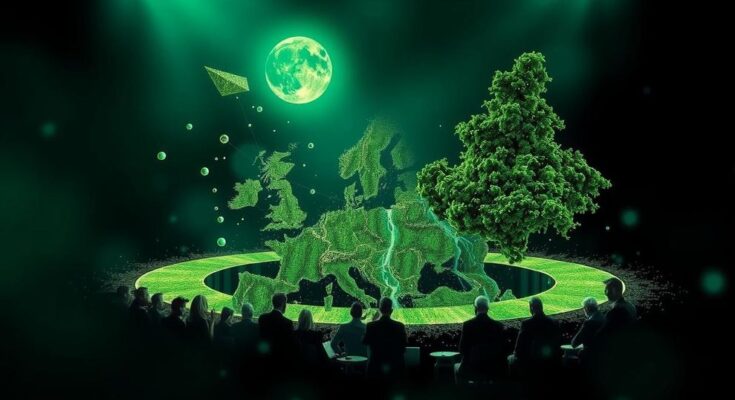Pro-Kremlin media has adapted its narrative on climate change, recognizing the phenomenon while using it to criticize and delegitimize Western policies. This strategic shift employs environmental discussions to undermine the credibility of EU governments, typically portraying them as hypocritical in their environmental efforts. Conspiracy theories and skepticism about climate initiatives are utilized to depict Western elites as inept or malicious, revealing the complexities of propaganda intertwined with climate discourse.
As the 29th UN Climate Change Conference (COP 29) approaches, pro-Kremlin media intensifies its climate discourse, adopting a strategy that recognizes climate change while simultaneously using the issue to criticize Western policies. These outlets increasingly leverage environmental narratives to question the integrity of EU governments, alleging hypocrisy regarding climate solutions, particularly by promoting the notion that renewable energy initiatives are inadequate compared to reliance on Russian gas imports. Russian state-controlled media has evolved from outright climate denial to a more sophisticated aggressive stance against Western policies, frequently painting them as hypocritical. Such narratives are tailored to different audiences; for instance, Russian media targeting leftist viewers in Latin America may report on climate change with a bias that contradicts right-leaning content aimed at conservative audiences in the United States. Notably, some Russian news outlets have even explored the idea that climate change may favor Russia by transforming its arctic lands into productive agricultural regions. While established Russian media largely acknowledges climate change, fringe outlets persistently propagate skepticism and conspiracy theories. A common thread among these narratives is an attempt to portray EU governments as manipulative, alleging that they exploit climate issues for ulterior motives. For instance, certain commentators have ridiculed environmental measures, such as Denmark’s initiative to tax greenhouse gas emissions from cattle, branding these efforts as absurd and overtly ideological. Pro-Kremlin media is observing a trend of using skepticism regarding climate change as a mechanism to delegitimize Western leadership. Articles that mock respectable media outlets or public officials often serve to reinforce this skeptical viewpoint. Allegations that “Western politicians and activists” are promoting unfounded fears about climate change echo through various outlets, painting a picture of ineptitude among EU leaders. In more fantastical narratives, some fringe media have claimed that elite families orchestrate climate change for personal gain or that climate protection efforts are disguised attempts at authoritarian governance. The depth of conspiracy theories within pro-Kremlin outlets is exemplified by bizarre assertions linking US climate initiatives to natural disasters, attributing such effects to supposed advanced technologies active in remote research locations. Ultimately, the common denominator in pro-Kremlin climate narratives is their strategic use to undermine public sentiment towards Western authority and integrity. While direct climate denial remains less prevalent, its potential use as a tool to critique Western legitimacy remains a part of a broader disinformation strategy. This reveals the opportunistic nature of pro-Kremlin propaganda, which is willing to adapt its messaging based on public utility and target audience.
The upcoming COP 29 serves as a key international platform regarding climate issues, particularly in light of increasing global challenges related to climate change. Russian state-controlled media historically dismissed climate change, but in recent times, they have shifted to an approach that acknowledges the phenomenon while employing it as an instrument to undermine Western policy and integrity. This climate discourse also reflects broader geopolitical tensions wherein narratives may serve to influence public perception against Western institutions and leaders. The tactics employed by these outlets are part of a sophisticated strategy to exploit environmental discussions to cast doubt on the credibility of EU and US narratives.
In conclusion, pro-Kremlin outlets are increasingly employing climate change narratives not merely to discuss environmental issues but as a means to critique Western governance models and elevate skepticism regarding their leadership. The transition from overt denial to calibrated acknowledgment of climate change reflects a strategic pivot in disinformation tactics aimed at discrediting Western responses. By framing climate discussions as a weapon against perceived hypocrisy among EU leaders, these narratives underscore the complex interactions between environmental issues and political propaganda.
Original Source: euvsdisinfo.eu




